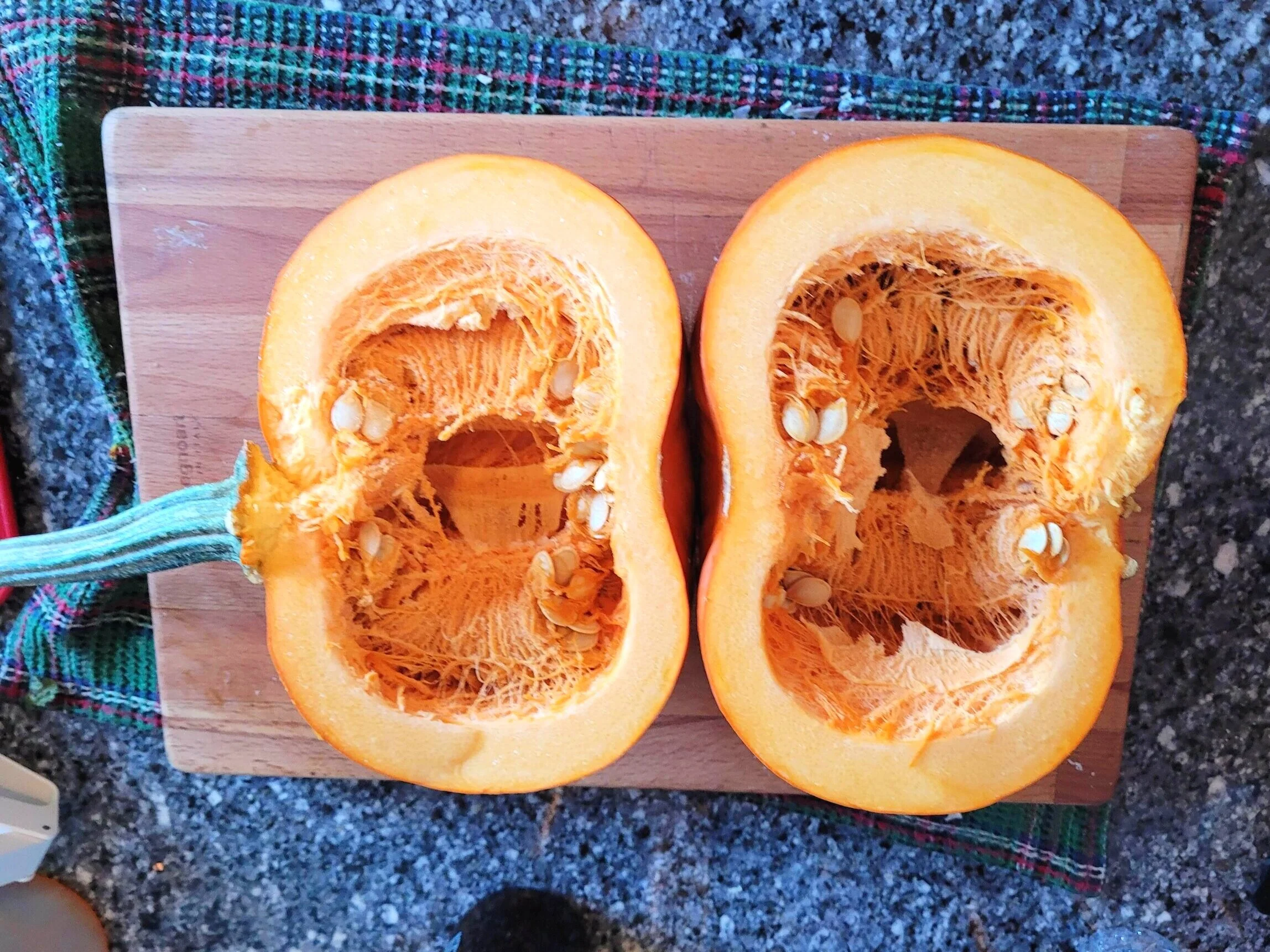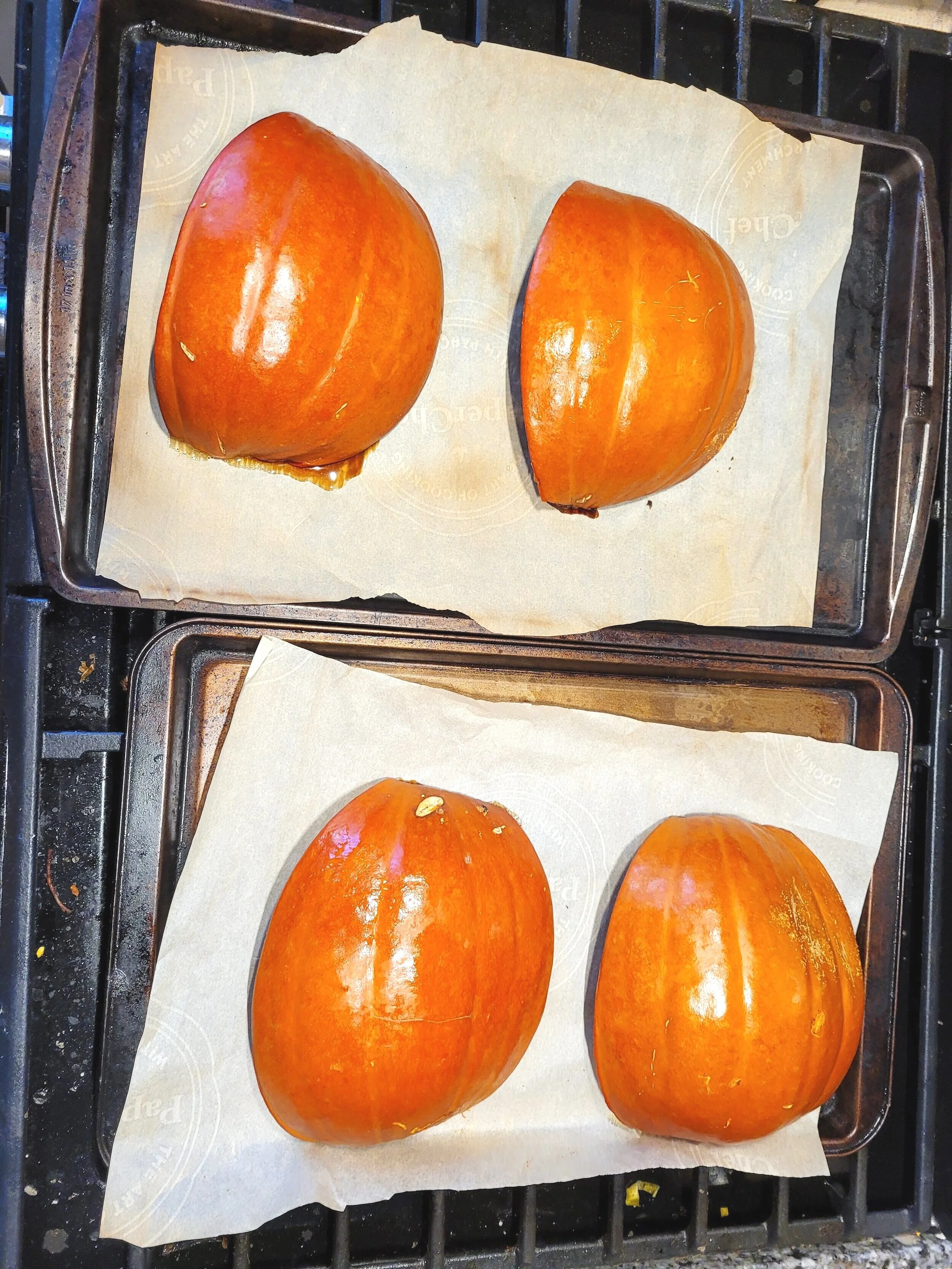Homemade Pumpkin Puree
What is Pumpkin Puree?
Pumpkin Puree is literally pureed pumpkin, of course, but many times what you’re buying canned in a store isn’t pure pumpkin. It’s usually the combination of several winter squashes like the Butternut Squash. Because pumpkins and squash are of the same family and the selected squashes generally have a similar autumnal taste, you’ve probably never had actual pumpkin puree.
Pumpkins are a cultivated winter squash that was traditionally grown alongside other squash to store for the long winter months. Because it was seen as such an essential food to have on hand, people started getting creative with ways to use and harvest these orange beauties. Even then, mixing other squash with pumpkins were a great way of using and bulking out your pumpkin puree supply.
Because it was such a household staple for the common man, it was used everywhere. North American pumpkin cuisine has become the most well known, often accompanying holidays like Thanksgiving in the forms of pies, soups, etc. Even some of the newer common autumn flavourings originate from the US! The first recorded pumpkin beer was dreamed up in 1985 by a Californian brewer, Bill Owens, and the famous PSL was developed only in 2003 by Starbucks.
The reason this persistent orange squash has stood the test of time is simple: it’s cheap, it stores easily, and it’s delicious. This made it an easy product to stay in the mainstream because it was a big impact ingredient that wasn’t a luxury item. So remember, whenever someone complains about how young women are corrupting autumn with all their pumpkin, remind them that this timeless tradition will outlive us all.
Not All Pumpkins Are Created Equal
Before we get into it, yes a pumpkin is technically a squash. But we’re only talking about specifically the pumpkin family today. There’s a surprisingly heated debate about the true number of varieties out there, but the general consensus ranges from 45-300 types of pumpkins.
Like a lot of things, some are grown for decoration and others are grown for cooking. Some of the largest Jack-O-Lantern varieties taste like cardboard, and definitely are not featured in pumpkin purees willingly. Others are made specifically to be that classic sweet, nutty flavour we associate so strongly with autumn. The most common varieties used for baking and cooking are:
Sugar Pumpkin aka Pie Pumpkin
Casper Pumpkin
Cherokee Bush
Cinderella Pumpkin
Pepitas Hybrid
Honorable Mention: Butternut Squash
Homemade Pumpkin Puree
Simone Peironnet | 10/10/2021
- prep time: 10 minutes
- cook time: 30 minutes
- total time: 45 minutes
Servings: 56 oz
Ingredients:
- 1 Sugar Pumpkin, around 5lbs
- A pinch of salt
Special Equipment: Blender
Instructions:
- Preheat oven to 450°F/232°C.
- Carefully cut your pumpkin in half and scoop out all pumpkin innards. Once innards are removed cut your halves again so that you have 4 equally sized quarters of your sugar pumpkin. The innards are great to make roasted pumpkin seeds if you decide to keep them.
- On two lined baking trays, place your pumpkin quarters face down with the skin side facing up.
- Place in your preheated oven for 30 minutes, or until easily poked with a fork. The texture should be similar to a fully baked potato.
- Allow to cool 5 minutes after soft, then remove the skin carefully to avoid burning. This can be made slihtly easier with a spoon. Discard skin.
- Add your pumpkin meat into your blender, along with a healthy pinch of salt. Blend until smooth.
- The sugar pumpkin is also known as a Pie Pumpkin, which are varieties grown specifically for eating. Store in the fridge for up to 2 weeks or in the freezer for several months!
Not sure how to use this? Give these a try!
Still Hungry? Try these recipes!





















As the air gets crisp, we thought there was no better time to lean into the first cozy meal of autumn. The pumpkin & goat cheese risotto is the epitome of a rainy day meal by being rich, creamy, and low effort. Although risottos can be intimidating, they’re actually a really easy way to feel fancier without very much effort. The spicy candied walnuts along with the acidic microgreen salad keep this meal from being too heavy and makes this a meal you can just keep eating until it’s gone.